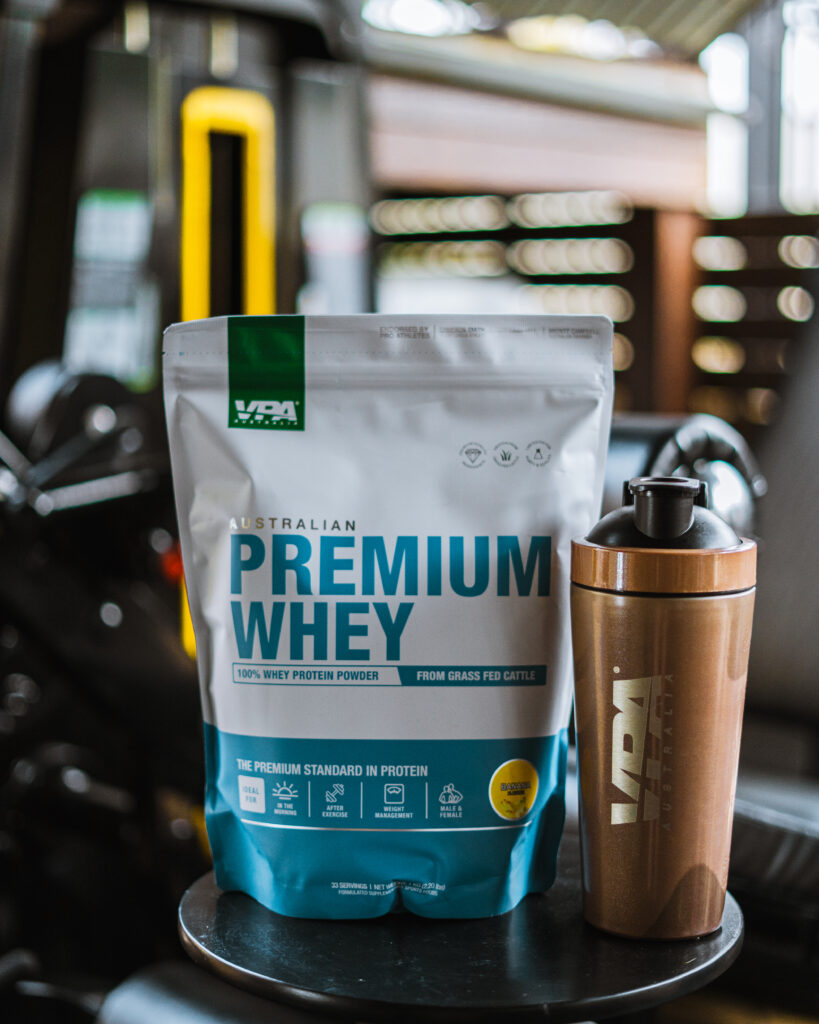When you’re looking to improve your diet, protein powder is king for muscle development, muscle repair, and especially weight loss/management. Many people looking to add more protein to their diets will supplement with a protein powder. While this can be a convenient alternative to simply eating more beef, chicken, or other high-protein foods, you may feel overwhelmed trying to find the right one. Here are five tips to help you pick the right one.
#1 Know your goals
Know your goals. Do you want to build lean muscle mass, or do you just want to improve your overall health? What are your priorities? When you know what you want from a protein supplement, you can make sure that it matches up with your goals.
Protein powders come in a wide variety of flavors and types. To help demystify which one is best for you, here are some rules of thumb for picking the suitable protein powder:
Aim to take in 0.36 grams of protein per pound of body weight each day. Consume a minimum of 50 grams per day and no more than 150 grams per day. Consuming too much protein can increase fat storage due to a higher caloric intake.
If you’re trying to gain lean muscle mass, then aim to consume 1-1.25 grams of protein per pound of body weight each day (e.g., if you weigh 180 pounds, you should take in 180-225 grams of protein each day).
#2 Know your whey
The most common source of protein powder is whey. Whey is derived from cows’ milk and tends to be less expensive than other protein sources. It also offers more branched-chain amino acids (BCAAs) than any other protein source, which can help the body recover from exercise faster and build muscle quicker for those who use it post-workout. Whey provides fast protein delivery to the body, making it an ideal post-workout option.
But not all whey is created equal. Whey concentrate has less fat and cholesterol but contains more carbohydrates (in the form of lactose). Whey isolate has about 90 percent protein by weight and contains little fat or carbohydrates.
Whey isolate also generally has fewer allergens and goes through a more extensive filtering process than concentrate. If you have problems with lactose or dairy, consider going for WPI.
#3 Determine your type of protein powder
Determine if you want whey or plant-based protein. This is a matter of preference and dietary restrictions. Some people have trouble digesting dairy products, so they prefer plant-based proteins (pea, rice, soy). Others prefer whey because it’s quickly digested and absorbed by the body.
#4 Read the ingredient label on your protein powder
This step is essential when buying any packaged food or supplement and applies to protein powders as well. While most people look at calories, carbohydrates, and protein, they forget that the ingredients label provides valuable information as well. It shows you everything that’s in a product, from the protein source itself to added sugar and artificial sweeteners.
#5 Know what to avoid
If you’re looking for a healthy protein supplement, make sure you avoid these ingredients:
Artificial Sweeteners: Aspartame and sucralose sound like they’re safe, but they’ve been shown to damage your gut microbiome and cause cancer. Artificial sweeteners are particularly common in weight loss protein powders, so this is something to be wary of if you’re watching your waistline.
Artificial Flavoring: If it says “artificial” anything on the label (including flavors), steer clear! These flavorings are processed with chemicals that have no business being in your body.
#6 Seek out products with additional supplements
In general, it’s important to look for protein powders that are low in fat and sugars but high in protein. In addition to the protein itself, you should also seek out products with additional supplements such as glutamine, BCAAs (branched-chain amino acids), fiber, and MCTs (medium-chain triglycerides). These supplements will increase the nutritional value of your shake and help improve your digestive health.
#7 Consider your current diet and lifestyle when choosing the right protein powder
Consider your current diet and lifestyle. Is there a particular food or ingredient you’re trying to avoid? If so, ruling out protein powders with that ingredient makes your decision easier. And if you’re looking to lose weight, it might be best to choose a product that doesn’t have sugars or other “extras” in it since those could add extra calories you don’t need.
In the end, the best protein powder is one that you will use. Ideally, the protein powder you choose fits into your daily caloric intake and health goals. Use the tips above to help you choose the right protein powder.

